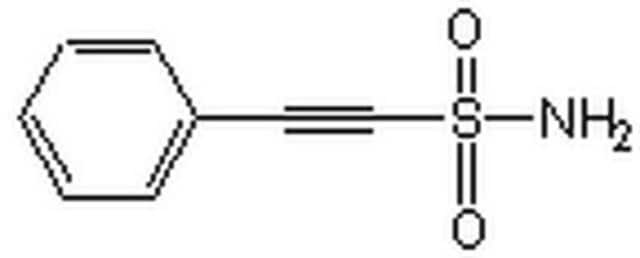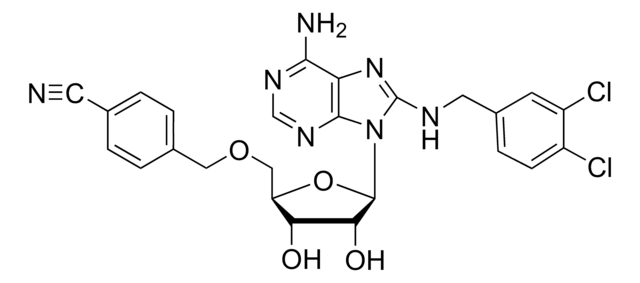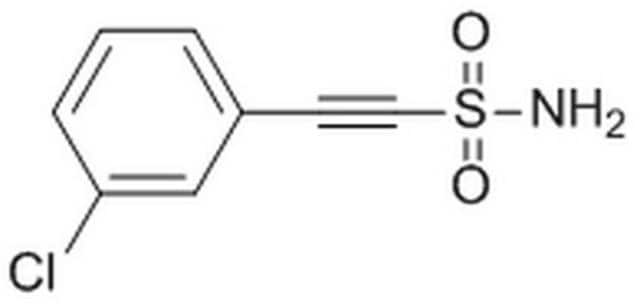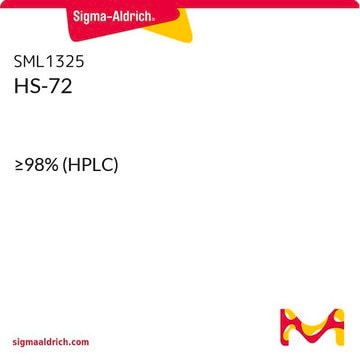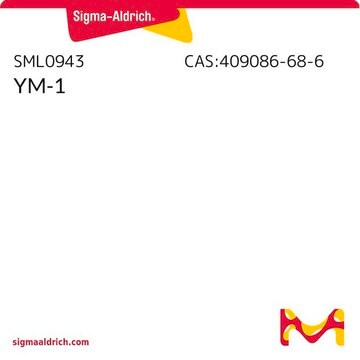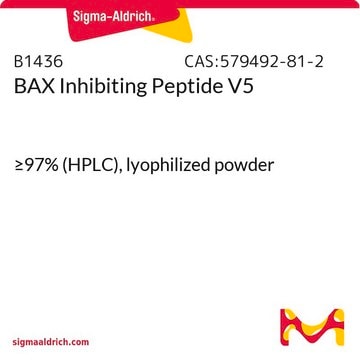P0122
Pifithrin-μ
≥97% (HPLC), solid
Sinónimos:
2-Phenyl-ethynesulfoanide, PFT-μ
About This Item
Productos recomendados
Quality Level
assay
≥97% (HPLC)
form
solid
storage condition
desiccated
solubility
DMSO: soluble >10 mg/mL, clear
H2O: insoluble
storage temp.
2-8°C
SMILES string
NS(=O)(=O)C#Cc1ccccc1
InChI
1S/C8H7NO2S/c9-12(10,11)7-6-8-4-2-1-3-5-8/h1-5H,(H2,9,10,11)
InChI key
ZZUZYEMRHCMVTB-UHFFFAOYSA-N
Application
- to treat microglial cell line to analyse its neuroprotective effect on M1-like and M2-like phenotype
- as heat shock protein (HSP)-70 inhibitor, to treat transfected Marc-145 cells
- to inhibit heat shock cognate 70 (Hsc70) to elucidate heat shock chaperones mouse embryonic stem cells
Biochem/physiol Actions
signalword
Warning
hcodes
Hazard Classifications
Acute Tox. 4 Oral
Storage Class
11 - Combustible Solids
wgk_germany
WGK 3
flash_point_f
Not applicable
flash_point_c
Not applicable
ppe
dust mask type N95 (US), Eyeshields, Gloves
Certificados de análisis (COA)
Busque Certificados de análisis (COA) introduciendo el número de lote del producto. Los números de lote se encuentran en la etiqueta del producto después de las palabras «Lot» o «Batch»
¿Ya tiene este producto?
Encuentre la documentación para los productos que ha comprado recientemente en la Biblioteca de documentos.
Los clientes también vieron
Nuestro equipo de científicos tiene experiencia en todas las áreas de investigación: Ciencias de la vida, Ciencia de los materiales, Síntesis química, Cromatografía, Analítica y muchas otras.
Póngase en contacto con el Servicio técnico